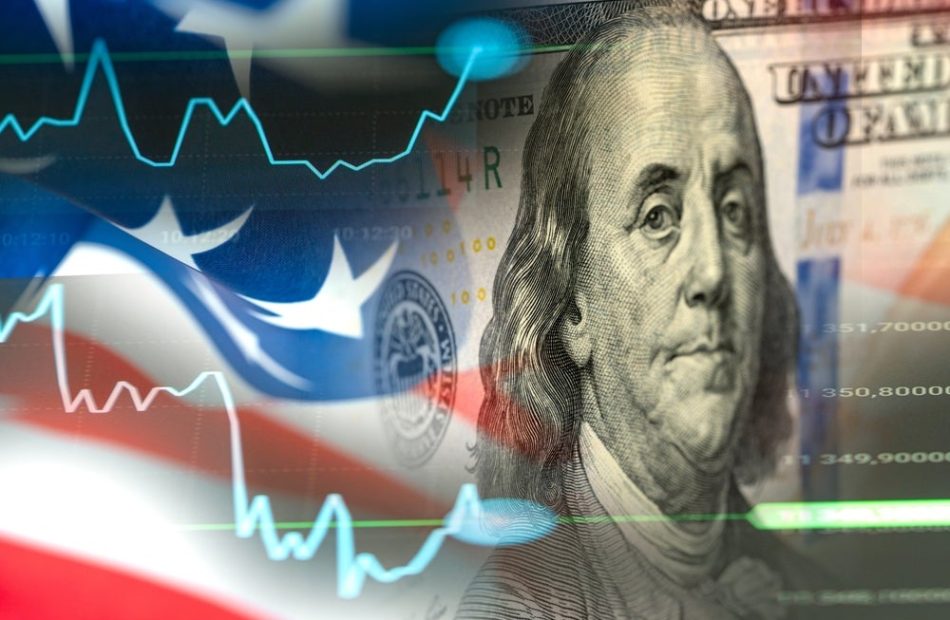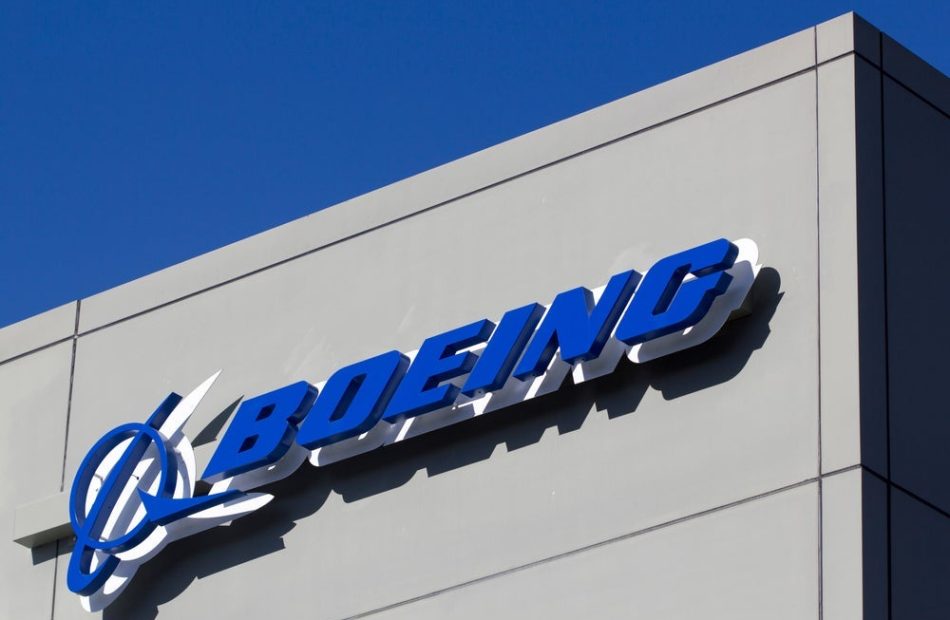3 Reliable Dividend Stocks With Yields Above 5% That You Can Buy With Less Than $100 Right Now
There’s no wrong way to put your money to work on Wall Street, but some methods produce more reliable gains than others. If you’re looking for a relatively safe and easy way to grow the stream of income you’ll have to work with during your retirement years, buying dividend-paying stocks and holding them for long periods is a terrific option.
During the 50-year period that ended in 2023, dividend-paying stocks in the S&P 500 index returned 9.17% annually on average. That’s more than double the return produced by their non-dividend-paying cousins. During the same period, the average dividend non-payers in the benchmark index returned just 4.27% annually, according to Ned Davis Research and Hartford funds.
You don’t need to be rich to put your money to work for you. At the moment, shares of AT&T (NYSE: T), Hercules Capital (NYSE: HTGC), and Pfizer (NYSE: PFE) offer dividend yields of 5% or better, and you can buy a share of all three with less than $100. Adding them to a portfolio now gives you a good chance to outperform the market while they beef up your passive-income stream.
1. AT&T
AT&T lowered its dividend payout in 2022 to adjust for the sale of its unpredictable media assets. Now that it’s strictly a telecommunications business, the cash flows it uses to make dividend payments should be extra reliable. At recent prices, the stock offers a 5.2% dividend yield.
Traditional-wireline subscriptions are still shrinking, but this headwind is easily overcome by demand for services that run on its 5G network and a growing web of fiber-optic cables. In the second quarter, mobility-service revenue rose 3.4% year over year, and this isn’t the only operation driving growth.
The three-month period ended June 30 was the 18th consecutive quarter in which AT&T added over 200,000 new fiber-internet subscribers. Late last year, the company also launched a fixed-wireless service for folks who aren’t located next to fiber optic cables. As a result, Q2 consumer-broadband sales rose 7% year over year.
At $2.7 billion in Q2, consumer broadband is responsible for less than 10% of total revenue. AT&T is one of just three telecom companies with a nationwide 5G network, so investors can reasonably rely on its consumer-broadband business to drive growth for many years to come.
2. Hercules Capital
Hercules Capital is a business development company (BDC), which means it can avoid income taxes by giving nearly all of its earnings to shareholders as a dividend payment. At recent prices, the stock’s regular distribution offers a big 8% yield.
Hercules also offers a supplemental dividend that it set at $0.32 per share this year. If next year’s supplemental dividend remains unchanged, investors who buy this stock at recent prices will receive a 9.7% yield.
Most BDCs originate relatively high-interest loans to established mid-sized businesses that already earn money. Hercules Capital takes a riskier approach to financing by engaging start-ups in the life science and technology industries before they have any recurring revenues to report.
In isolation, the bets Hercules makes are extremely risky. The potential payoffs are so large, though, that the company can report strong-earnings growth if just a fraction of its investments succeed.
Hercules has raised or maintained its regular distribution since 2010, and continued movement in the right direction seems likely. In the first half of 2024, the BDC reported $1.07 billion in total-gross funding, which was 28% more than the previous-year period.
3. Pfizer
Sales of Pfizer’s COVID-19 vaccine and antiviral treatment broke records regarding its rate of growth and decline. Sales of Comirnaty and Paxlovid shot up to a combined $56.7 billion in 2022. Less than a year and a half later, sales of the same two drugs collapsed to an annualized $1.8 billion.
Don’t let its recent ups and downs confuse you. Pfizer is a reliable dividend payer that has raised its payout every year since 2009. At recent prices, it offers a 5.7% yield that will be easier to predict now that sinking sales of its COVID-19 products are responsible for less than 3% of total revenue.
Pfizer’s dividend payout is supported by one of the largest catalogs of drugs with patent-protected market exclusivity. In the first half of 2024, a dozen of its products grew sales by a double-digit percentage compared to the previous year period.
One of the investments Pfizer made with its pandemic-related earnings haul was the $43 billion acquisition of cancer drug developer Seagen. The purchase gave Pfizer access to four commercial-stage treatments, including Padcev. In late 2023, Padcev became a chemotherapy-free option for newly diagnosed bladder cancer patients. As such, sales are expected to reach $8 billion annually by 2030.
Padcev is one of several blockbuster drugs that could help Pfizer continue its dividend-raising streak. Adding some shares to a diverse portfolio now seems like the right move.
Don’t miss this second chance at a potentially lucrative opportunity
Ever feel like you missed the boat in buying the most successful stocks? Then you’ll want to hear this.
On rare occasions, our expert team of analysts issues a “Double Down” stock recommendation for companies that they think are about to pop. If you’re worried you’ve already missed your chance to invest, now is the best time to buy before it’s too late. And the numbers speak for themselves:
-
Amazon: if you invested $1,000 when we doubled down in 2010, you’d have $21,022!*
-
Apple: if you invested $1,000 when we doubled down in 2008, you’d have $43,329!*
-
Netflix: if you invested $1,000 when we doubled down in 2004, you’d have $393,839!*
Right now, we’re issuing “Double Down” alerts for three incredible companies, and there may not be another chance like this anytime soon.
*Stock Advisor returns as of October 7, 2024
Cory Renauer has no position in any of the stocks mentioned. The Motley Fool has positions in and recommends Pfizer. The Motley Fool has a disclosure policy.
3 Reliable Dividend Stocks With Yields Above 5% That You Can Buy With Less Than $100 Right Now was originally published by The Motley Fool
Mortgage Rates, Inflation, Fed Debates, And Mark Cuban's Take On Tariffs: This Week In Economics
The past week has been a rollercoaster ride for the financial world. From a sudden shift in mortgage rates to unexpected inflation figures, the economic landscape has been anything but predictable. The Federal Reserve has been at the center of heated debates, while billionaire Mark Cuban has voiced his opinions about tariffs.
Here’s a quick recap of the top stories.
Mortgage Rates Take a U-Turn
Homebuyers were left in the cold as mortgage rates made a dramatic U-turn, causing a 5% drop in applications. This shift has led to a reevaluation of the Federal Reserve’s policy by the markets. The iShares Residential and Multisector Real Estate ETF is one to watch in this changing landscape.
September Inflation Surprises
The U.S. inflation rate continued its six-month decline in September, albeit at a slower pace than economists had anticipated. Meanwhile, jobless claims saw their largest weekly increase since July 2023, complicating the outlook for interest rates. The SPDR Dow Jones Industrial Average ETF could be impacted by these developments.
Controversy Over ‘Shadow Fed Chair’
A proposal by a Donald Trump advisor to establish a “shadow Fed chair” has been met with criticism from economist Claudia Sahm. The plan could potentially undermine current Federal Reserve Chair Jerome Powell, leading to uncertainty in the markets. JPMorgan Chase is one company that could be affected by this proposal.
Fed Minutes Reveal Heated Debate
Minutes from the September Federal Open Market Committee (FOMC) meeting revealed a heated debate over interest rate cuts. The discussion highlighted diverging views on the pace of monetary policy easing amid inflation concerns and solid economic growth. The Invesco DB USD Index Bullish Fund ETF and SPDR S&P 500 could be influenced by these discussions.
Mark Cuban Criticizes Trump’s Tariffs
Billionaire entrepreneur Mark Cuban has criticized former President Donald Trump’s proposed tariffs, advocating instead for strategic approaches to boost U.S. manufacturing. Cuban’s comments have sparked a lively debate on global trade and domestic production.
Read Next:
Photo courtesy: Shutterstock
This story was generated using Benzinga Neuro and edited by Ananya Gairola
Market News and Data brought to you by Benzinga APIs
© 2024 Benzinga.com. Benzinga does not provide investment advice. All rights reserved.
Donald Trump Says His Crypto Project World Liberty Financial Will Start Selling Tokens On Tuesday
Donald Trump supported decentralized finance protocol World Liberty Financial‘s token sale will go live on Tuesday morning, the former President said on Saturday.
What Happened: “This is YOUR chance to help shape the future of finance,” Trump wrote on social media platform X, formerly Twitter, about the upcoming token sale. The President also urged interested candidates to take part in the X Spaces event to be held on Monday regarding the token sale.
The World Liberty Financial’s website now shows a ticking timer until the start of the sale.
Why It Matters: According to The Block’s report from last week, the project aims to raise $300 million from the initial sale. It will sell 20% of the token supply at a $1.5 billion fully diluted valuation, the report said, citing the roadmap shared with prospective investors.
The token called WLFI will serve as the platform’s governance token and will allow users to vote on its future development. However, the token will be non-transferable and non-yielding, differing from most crypto assets that can be traded or generate passive income.
Price Action: The broader crypto market responded positively to the news. Bitcoin BTC/USD saw a 0.34% increase over the last 24 hours, while Ethereum ETH/USD rose by 0.86%, and Dogecoin DOGE/USD gained 1.15%, according to data from Benzinga Pro.
Read More:
Image via Wikimedia Commons
Market News and Data brought to you by Benzinga APIs
© 2024 Benzinga.com. Benzinga does not provide investment advice. All rights reserved.
October's Top Dividend Stocks for Retirees Seeking Reliable Monthly Income
Benzinga and Yahoo Finance LLC may earn commission or revenue on some items through the links below.
Real estate investment trusts (REITs) offer compelling opportunities for investors looking to supplement their monthly income. REITs own, operate or finance income-generating real estate, allowing individuals to invest in various real estate types without having direct ownership or management responsibilities.
REITs must also distribute a large percentage of their taxable income to shareholders as dividends, often resulting in hefty yields.
Don’t Miss:
-
This billion-dollar fund has invested in the next big real estate boom, here’s how you can join for $10.
This is a paid advertisement. Carefully consider the investment objectives, risks, charges and expenses of the Fundrise Flagship Fund before investing. This and other information can be found in the Fund’s prospectus. Read them carefully before investing. -
Your biggest returns may not come from the stock market. Invest the way colleges, pension funds, and the 1% do. Get started investing in commercial real estate today.
If you’re an income-seeking investor, here are three high-yielding REITs that pay monthly dividends.
Whitestone REIT
Whitestone REIT (NYSE:WSR) owns and manages a portfolio of open-air retail centers. As of June 30, its portfolio comprised 57 properties containing approximately 5.1 million square feet of gross leasable area. Its properties are located in some of the fastest-growing markets in the U.S., including Phoenix, Austin, Dallas-Fort Worth, Houston and San Antonio.
Whitestone pays a monthly dividend of $0.04125 per share, which equates to an annualized dividend of $0.495 per share and gives its stock a yield of about 3.7% at the time of this writing.
Whitestone has also been delivering dividend growth to its shareholders. It has raised its annual dividend payment for two consecutive years and its 3% hike in March puts it on pace for 2024, marking the third consecutive year with an increase.
Agree Realty Corporation
Agree Realty Corporation (NYSE:ADC) owns and manages a portfolio of retail properties, including community shopping centers, warehouse clubs, convenience stores, quick-service restaurants and car dealerships. As of June 30, its portfolio comprised 2,202 properties containing approximately 46 million square feet.
Agree Realty pays a monthly dividend of $0.25 per share, which equates to an annualized dividend of $3.00 per share and gives its stock a yield of about 4.05% at the time of this writing.
Like Whitestone, Agree Realty has shown a dedication to growing its dividend. It has raised its annual dividend payment for 11 consecutive years and recent hikes, including its 2.9% hike in April, have it on pace for 2024 to mark the 12th consecutive year with an increase.
Trending: A billion-dollar investment strategy with minimums as low as $10 — you can become part of the next big real estate boom today.
This is a paid advertisement. Carefully consider the investment objectives, risks, charges and expenses of the Fundrise Flagship Fund before investing. This and other information can be found in the Fund’s prospectus. Read them carefully before investing.
Realty Income
Realty Income (NYSE:O) is the world’s seventh-largest REIT by market capitalization. As of June 30, its portfolio comprised 15,450 properties containing approximately 335 million square feet.
Realty Income pays a monthly dividend of $0.2635 per share, which equates to an annualized dividend of $3.162 per share and gives its stock a yield of about 5.1% at this time.
In addition to offering a high yield, Realty Income is one of the best sources of dividend growth in the REIT industry. It has raised its annual dividend payment for an impressive 29 consecutive years. Recent hikes, including its 0.2% increase in September, have it on track for 2024 to mark the 30th consecutive year with an increase.
Wondering if your investments can get you to a $5,000,000 nest egg? Speak to a financial advisor today. SmartAsset’s free tool matches you up with up to three vetted financial advisors who serve your area, and you can interview your advisor matches at no cost to decide which one is right for you.
Keep Reading:
This article October’s Top Dividend Stocks for Retirees Seeking Reliable Monthly Income originally appeared on Benzinga.com
Oregon's most populous county adds gas utility to $51B climate suit against fossil fuel companies
PORTLAND, Ore. (AP) — Oregon’s Multnomah County, home to Portland, has added the state’s largest natural gas utility to its $51.5 billion climate lawsuit against fossil fuel companies over their role in the region’s deadly 2021 heat- dome event.
The lawsuit, filed last year, accuses the companies’ carbon emissions of being a cause of the heat-dome event, which shattered temperature records across the Pacific Northwest. About 800 people died in Oregon, Washington state and British Columbia in the heat wave, which hit in late June and early July 2021.
An amended complaint was filed this week, adding NW Natural to a lawsuit that already named oil giants such as ExxonMobil, Chevron and Shell as defendants. It accuses NW Natural, which provides gas to about 2 million people across the Pacific Northwest, of being responsible for “a substantial portion” of greenhouse gas emissions in Oregon and deceiving the public about the harm of such emissions.
NW Natural said it can’t comment in detail until it has completed reviewing the claims.
“However, NW Natural believes that these new claims are an attempt to divert attention from legal and factual laws in the case. NW Natural will vigorously contest the County’s claims should they come to court,” it said in an emailed statement.
According to the Center for Climate Integrity, it is the first time a gas utility has been named in a lawsuit accusing fossil fuel companies of climate deception. There are currently over two dozen such lawsuits that have been filed by state, local and tribal governments across the U.S., according to the group.
The amended complaint also added the Oregon Institute of Science and Medicine, which describes itself as a research group on its website, to the lawsuit. The group has opposed the concept of human-caused global warming. A request for comment sent Friday to the email address on its website was returned to sender.
Multnomah County is seeking $51.5 billion in damages, largely for what it estimates to be the cost of responding to the effects of extreme heat, wildfire and drought.
“We’re already paying dearly in Multnomah County for our climate crisis — with our tax dollars, with our health and with our lives,” county chair Jessica Vega Pederson said in a statement. “Going forward we have to strengthen our safety net just to keep people safe.”
After the initial complaint was filed last year, ExxonMobil said the lawsuit didn’t address climate change, while a Chevron lawyer said the claims were baseless.
When contacted for comment Friday, Shell said it was working to reduce its emissions.
“Addressing climate change requires a collaborative, society-wide approach,” it said in an emailed statement. “We do not believe the courtroom is the right venue to address climate change, but that smart policy from government and action from all sectors is the appropriate way to reach solutions and drive progress.”
The case is pending in Multnomah County Circuit Court.
Netflix Stock Gets Price-Target Hikes Ahead Of Q3 Report
Netflix (NFLX) stock has received a flurry of price-target increases ahead of the streaming video leader’s third-quarter report next week.
On Friday, brokerage firms Guggenheim Securities and Macquarie Capital raised their targets for Netflix stock.
Earlier in the week, Netflix stock scored price-target hikes from Deutsche Bank, Morgan Stanley, Oppenheimer, Piper Sandler and TD Cowen.
↑
X
This Leading Chip Stock’s Earnings Could Be Barometer For AI Spending Strength
“While Netflix shares are up 56% year-to-date compared to 22% for the S&P 500, we continue to see attractive shareholder returns over the next 12 months,” Guggenheim analyst Michael Morris said in a client note.
Positive catalysts for Netflix include continued global subscriber growth and accelerating advertising revenue growth.
Morris reiterated his buy rating on Netflix stock and upped his price target to 810 from 735.
On the stock market today, Netflix stock slid 1% to close at 722.79.
Netflix is continuing to grab viewership share, Morris said. Popular Netflix content in the third quarter included “The Perfect Couple,” “Monsters: The Lyle and Erik Menendez Story” and season four of “Emily in Paris.”
Netflix Stock Is A Recent Breakout
Meanwhile, investor focus is shifting from subscriber gains to expected price increases, Jefferies analyst James Heaney said in a client note Friday.
Impending price increases and a strong content slate in the second half of 2024, including Christmas NFL games and “Squid Game” season two, “keep us bullish,” Heaney said.
Heaney rates Netflix stock as buy with a price target of 780.
Netflix will release its third-quarter results late Thursday. Analysts polled by FactSet expect Netflix to earn $5.09 a share on revenue of $9.77 billion in the third quarter. That would translate to year-over-year growth of 36% in earnings and 14% in sales.
Further, analysts expect the internet television network to add 3.9 million subscribers worldwide for a total of 281 million subscribers.
Netflix stock has been trading in a tight range since it broke out of a cup base at a buy point of 697.49 on Aug. 20, according to IBD MarketSurge charts. It is in the 5% buy zone of that breakout, based on IBD trading guidelines.
Netflix stock is on the IBD 50 list.
Follow Patrick Seitz on X, formerly Twitter, at @IBD_PSeitz for more stories on consumer technology, software and semiconductor stocks.
YOU MAY ALSO LIKE:
AMD’s ‘Advancing AI’ Event Called ‘Largely Uneventful’
Apple Stock Downgraded, Needs Time To ‘Ripen’
Find Compelling Growth Stocks With IBD’s Stock Of The Day
MarketSurge: Research, Charts, Data And Coaching All In One Place
Get Stock Ideas From IBD Experts Each Morning Before The Open
3 Stocks That Could Double Over the Next 2 Years
Sometimes Wall Street is slow to award companies the valuation they deserve based on positive trends happening in the business. Investors who buy reasonably valued stocks ahead of sharp increases in their earnings can see substantial gains on their investment.
To aid your search, a group of Motley Fool contributors recently selected three stocks they believe can double in value, or get close to it, within two years. Here’s why they like Carnival (NYSE: CCL), Pinterest (NYSE: PINS), and Opendoor Technologies (NASDAQ: OPEN).
Carnival is still rebounding
Jennifer Saibil (Carnival): Carnival has made a sweeping rebound from its pandemic lows, moving from meme stock to top stock. However, it remains down 64% from its highs over the past five years. There are still a few outstanding issues that are blocking it from returning to its previous levels, but when they are resolved, Carnival should be a standout stock.
One is profitability. Although Carnival’s revenue is reaching record levels and demand is stronger than ever, its profits haven’t returned as quickly. Net income has been up and down, although it made a healthy showing in the fiscal third quarter at $1.7 billion. Wall Street is expecting that to be negative again in the fourth quarter but positive for the full year.
The other and more glaring issue for Carnival is its debt. The debt reached as high as nearly $35 billion at its peak, and although it’s paid off a nice chunk, it’s going to take many years to get the debt to pre-pandemic levels. Carnival didn’t go into this period without debt — it had around $9 billion before. That isn’t unusual for well-established companies, especially those that pay a dividend, like Carnival did in its pre-pandemic life. So while it may not be looking to get down to zero, it still has a ways to go before hitting targets that bring down its risk level.
Management is expecting its increasing free cash flow to go toward paying off the debt. It needs to deftly manage keeping cash coming in and using it to invest in its business, and also have enough remaining to pay off the debt at a steady pace.
Several factors are working in its favor right now. One is the incredibly high demand that isn’t stopping. Carnival cruises are booked out through most of next year at high ticket prices with record deposits, bringing in much-needed funds. It’s already beginning 2026 bookings at record levels.
Another is lower interest rates, which can help it refinance its debt at better rates. That should make it easier to pay off earlier. It could also lead to higher demand as more people feel the flexibility to spend again.
Carnival stock doubled last year on its sales rebound. If it makes enough headway on its profit and debt goals over the next two years, it could easily double again.
Millions of people are shopping with Pinterest
John Ballard (Pinterest): One stock investors have forgotten about is Pinterest. This is a fallen darling of the post-pandemic surge in growth for digital media platforms, when Pinterest experienced robust growth from people staying at home and browsing apps on their phones. The company’s revenue growth has accelerated this year, which could set up a comeback for the shares.
Like other social media platforms, Pinterest uses digital advertising to generate revenue. The recovery in the digital ad market and recent artificial intelligence (AI) features are driving higher conversion for advertisers, which has pushed quarterly revenue growth back above 20% year over year for two straight quarters.
The biggest differentiator for the Pinterest app is that people use it when they are shopping. This is appealing to advertisers, and Pinterest continues to lean into this with features that encourage users to click and make a purchase. The number of outbound clicks sent to advertisers more than doubled in the second quarter, for the third consecutive quarter.
Pinterest is also seeing accelerating growth in monthly active users. They’ve increased by 12% year over year in Q2 to reach 522 million. This growth is mostly coming from outside the U.S. and Canada, indicating that Pinterest has a lot of global potential.
The stock trades at a very reasonable forward price-to-earnings (P/E) ratio of 23 on this year’s earnings estimate and 19 times next year’s expected earnings. Higher margins are expected to grow earnings at high rates over the next few years, which should send the shares higher.
Competing platforms like Instagram owner Meta Platforms and Snap trade at forward P/E multiples of 27 and 48, respectively. If Pinterest stock trades at a P/E of 30 on 2026 earnings estimates, it would trade at $64, or 90% higher than the current share price. That’s close to a potential double, and Pinterest could certainly get there by meeting Wall Street’s expectations.
An easy way to bet on a housing recovery
Jeremy Bowman (Opendoor Technologies): Opendoor’s history on the stock market has mostly been a disaster thus far.
Shares of the professional home-flipper are now down 95% from its post-IPO peak in 2021, but the main reason for its struggles is the collapse of the housing market after the pandemic. Falling prices and weak demand led to major losses for a company whose business depends on buying houses and selling them for a profit.
The macro gods may be finally smiling on Opendoor, as the housing market appears to be on the verge of a recovery. The Federal Reserve just slashed benchmark interest rates and is expected to continue lowering them over the next couple of years. That means mortgage rates should also come down, encouraging more buyers to come back into the market. That demand should also encourage more sellers, which will provide more opportunity for Opendoor.
Currently, annual existing home sales are at a pace of roughly 4 million, down about 40% from where they were before the pandemic. As the home sale rate normalizes, Opendoor’s business should grow. While rising home prices help the company, it also makes money from fees when it buys and sells properties.
Additionally, the company has streamlined its business after several layoffs, which should help drive profitability. Currently, the stock trades for less than $2 a share and has a market cap of $1.3 billion, which means it could double in the next two years if macroeconomic conditions cooperate.
While the stock remains risky and should continue to be volatile, there’s a lot of upside potential in Opendoor stock in a healthy housing market.
Should you invest $1,000 in Carnival Corp. right now?
Before you buy stock in Carnival Corp., consider this:
The Motley Fool Stock Advisor analyst team just identified what they believe are the 10 best stocks for investors to buy now… and Carnival Corp. wasn’t one of them. The 10 stocks that made the cut could produce monster returns in the coming years.
Consider when Nvidia made this list on April 15, 2005… if you invested $1,000 at the time of our recommendation, you’d have $826,130!*
Stock Advisor provides investors with an easy-to-follow blueprint for success, including guidance on building a portfolio, regular updates from analysts, and two new stock picks each month. The Stock Advisor service has more than quadrupled the return of S&P 500 since 2002*.
*Stock Advisor returns as of October 7, 2024
Randi Zuckerberg, a former director of market development and spokeswoman for Facebook and sister to Meta Platforms CEO Mark Zuckerberg, is a member of The Motley Fool’s board of directors. Jennifer Saibil has no position in any of the stocks mentioned. Jeremy Bowman has positions in Meta Platforms and Pinterest. John Ballard has positions in Meta Platforms. The Motley Fool has positions in and recommends Meta Platforms, Opendoor Technologies, and Pinterest. The Motley Fool recommends Carnival Corp. The Motley Fool has a disclosure policy.
3 Stocks That Could Double Over the Next 2 Years was originally published by The Motley Fool
Trump's Election Odds On Polymarket, Gary Gensler's Doubts About Cryptocurrency's Future, Shiba Inu Lead Developer's Cryptic Post Sparks Intrigue And More: This Week In Crypto
The weekend was buzzing with noteworthy stories from the world of cryptocurrency. From the sudden surge in Donald Trump’s presidential election odds on Polymarket to speculations about the real identity of Bitcoin’s creator, and cryptic posts from Shiba Inu‘s SHIB/USD lead developer, the crypto community had a lot to talk about. Let’s dive into the top stories that kept the crypto world on its toes over the weekend.
Trump’s Election Odds Surge on Polymarket
The sudden increase in Donald Trump’s chances to win the presidential election on Polymarket has sparked discussions beyond the crypto community. Nate Silver, the founder of FiveThirtyEight, attributes this shift to the “doldrums” of the presidential campaign. He believes that market sentiment can sometimes have a mind of its own, especially during periods of relative calm between major events. Read the full article here.
Is Len Sassaman Bitcoin’s Creator?
Bettors on Polymarket are considering a high probability of Len Sassaman being identified as Bitcoin’s BTC/USD creator, Satoshi Nakamoto, in the upcoming HBO documentary titled ‘Money Electric: The Bitcoin Mystery’. Sassaman, a cypherpunk and developer of the PGP encryption and privacy technology, has often been linked to the mystery of Nakamoto’s identity. Read the full article here.
Shiba Inu’s Lead Developer’s Cryptic Post
Shytoshi Kusama, the mysterious lead developer and co-founder of the Shiba Inu ecosystem, shared a cryptic post that sparked intrigue and speculation in the crypto community. The suspenseful figure reposted a message from another user, Tsukiyomi Mishima, captioned, “I think this will be the last chapter to my story…” Read the full article here.
Peter Schiff’s Advice to MicroStrategy’s Founder
Renowned economist Peter Schiff suggested that Michael Saylor, the boss of MicroStrategy Inc. MSTR, should buy the large stash of Bitcoin that the U.S. government plans to sell. Schiff’s comments followed the U.S. government’s decision to sell 69,370 BTC it had seized from the dark web marketplace Silk Road. Read the full article here.
Gary Gensler’s Doubts About Cryptocurrency’s Future
U.S. Securities and Exchange Commission (SEC) Chairman Gary Gensler expressed his doubts about the potential of cryptocurrencies, including Bitcoin, to become widely accepted forms of payment. Gensler believes that cryptocurrencies are likely to continue being seen primarily as a store of value rather than a widely accepted medium of exchange. Read the full article here.
Photo courtesy: Unsplash
This story was generated using Benzinga Neuro and edited by Anan Ashraf.
Market News and Data brought to you by Benzinga APIs
© 2024 Benzinga.com. Benzinga does not provide investment advice. All rights reserved.
US court puts on hold permits for Kinder Morgan unit to build Tennessee pipeline
(Reuters) -A U.S. appeals court on Friday put on hold approvals and permits necessary to allow a Kinder Morgan subsidiary to construct a 32-mile gas pipeline in Tennessee, at the urging of environmental groups.
The proposed Cumberland Project, set to be constructed by Kinder Morgan’s Tennessee Gas Pipeline, could transport about 245,000 dekatherms per day of additional natural gas to power supplier Tennessee Valley Authority.
On a 2-1 vote, Cincinnati-based 6th U.S. Circuit Court of Appeals put a hold on the Tennessee Department of Environment and Conservation’s order issuing a water quality certification and the Army Corps of Engineers’ issuance of a permit.
The request for a stay was filed by environmental organizations Appalachian Voices and Sierra Club, which claimed the pipeline’s construction could have detrimental impact on the environment.
The court said a stay was appropriate for it to have the time to consider the merits of the environmental groups’ case.
It said further arguments in the case would be heard in December.
A Kinder Morgan spokesperson said the company does not agree with the court’s decision, which it will continue to review while evaluating its options.
Bri Knisely, Director of Public Power Campaigns at Appalachian Voices, welcomed the court’s decision
“The Cumberland Pipeline poses a major, unnecessary risk to important aquatic habitat in Tennessee, as well as the health and safety of our communities,” she said.
Sierra Club did not immediately respond to Reuters’ requests for comment.
(Reporting by Vallari Srivastava in Bengaluru and Nate Raymond in Boston; Additional reporting by Chandni Shah; Editing by Shreya Biswas)
Jim Cramer Says 'I'm Worried' About Boeing After Plane Maker Lays Off 17,000 Employees Amid Safety And Financial Woes: 'A Very Jarring Series Of News Tonight'
Jim Cramer expressed his concerns regarding Boeing Co.’s BA financial health after the plane maker announced plans to lay off 17,000 employees in the wake of ongoing safety issues and worker strikes.
What Happened: Cramer, in CNBC‘s Lightning Round on Saturday, voiced his worries about Boeing’s financial situation, stating, “I’m worried…The balance sheet’s not great, and they should have raised capital when they had a chance to.”
“This was a very jarring series of news tonight, and I don’t have any conviction whatsoever that they are getting this right,” he added.
See Also: Tesla Stock Falls Nearly 3% In Overnight Trading On Robinhood After Self-Driving Cybercab Unveil
Boeing’s CEO, Kelly Ortberg, disclosed the impending job cuts in an email to staff. The layoffs, which will affect a range of employees including executives and managers, represent about 10% of the company’s workforce and will be implemented over the coming months.
Why It Matters: The aerospace giant has been grappling with a series of challenges this year. In January, its 737 Max planes were grounded following a mid-flight incident. In July, Boeing admitted guilt in crashes involving the 737 Max in 2018 and 2019, which resulted in over 300 fatalities.
Further complications arose with Boeing’s Starliner spacecraft, which returned from the International Space Station in September without astronauts due to technical issues. Additionally, nearly 33,000 Boeing factory workers have been on strike since mid-September, further complicating the company’s situation.
Ortberg stressed the need for the layoffs to align with Boeing’s financial reality and future recovery plans. The delivery of the first 777X airplane has now been postponed to 2026, as stated in Ortberg’s memo.
Image Credit: Shutterstock
This content was partially produced with the help of Benzinga Neuro and was reviewed and published by Benzinga editors.
Market News and Data brought to you by Benzinga APIs
© 2024 Benzinga.com. Benzinga does not provide investment advice. All rights reserved.










